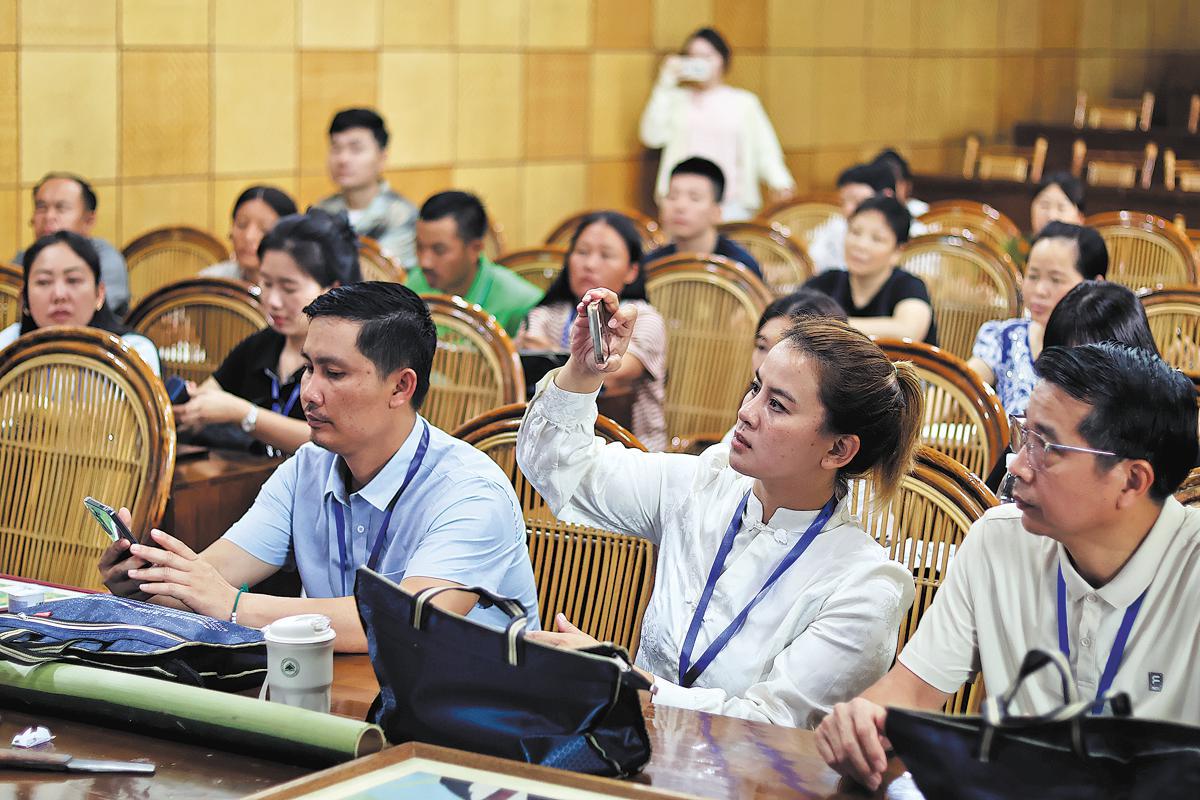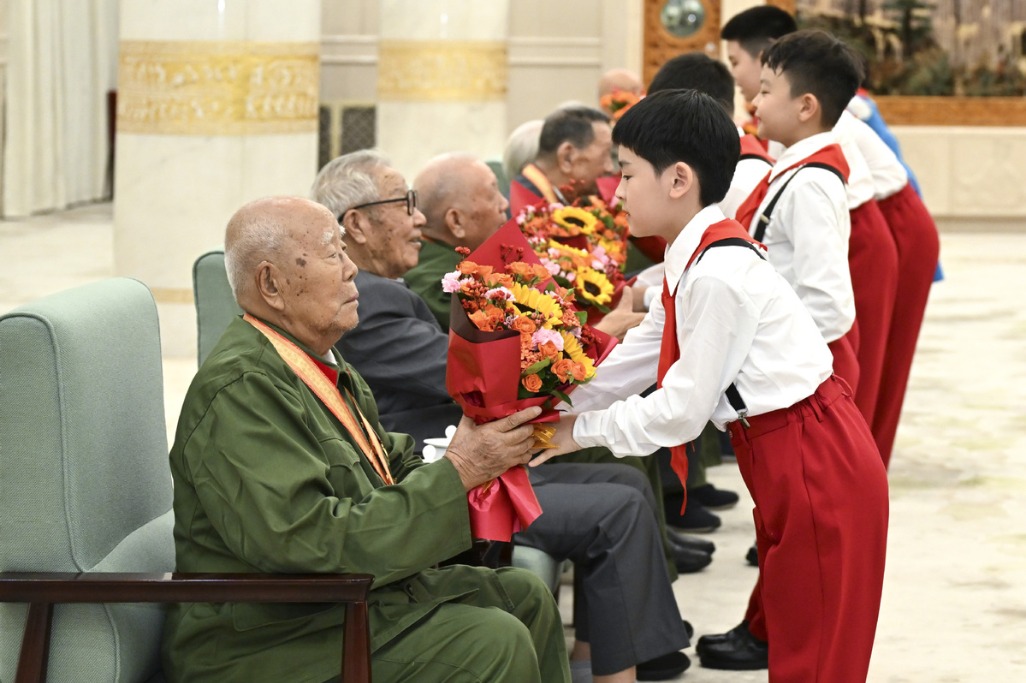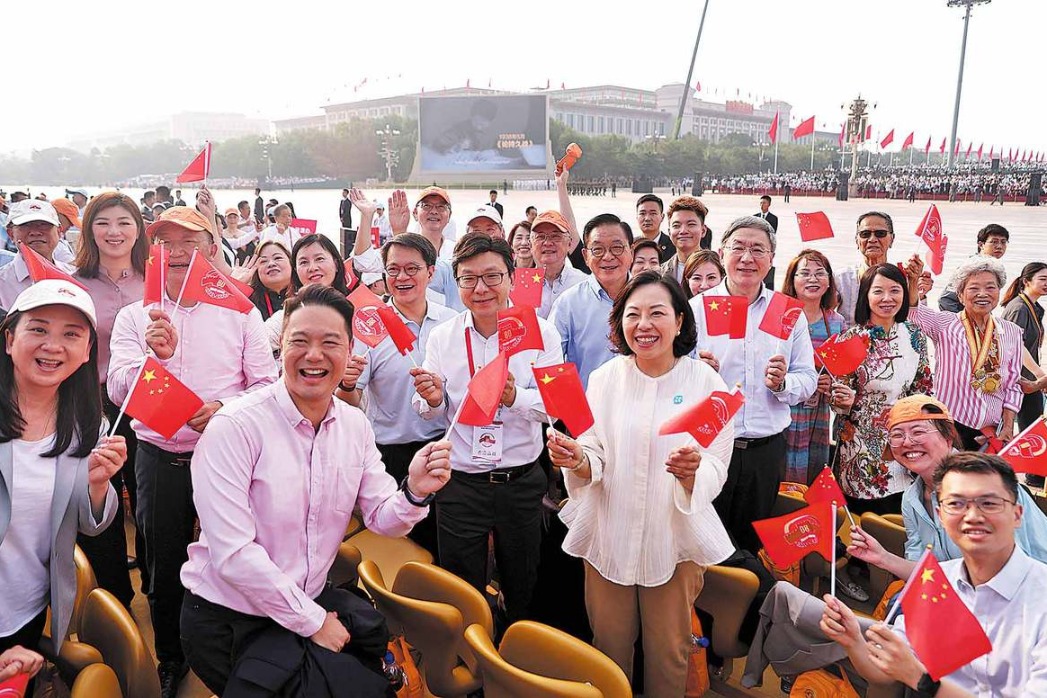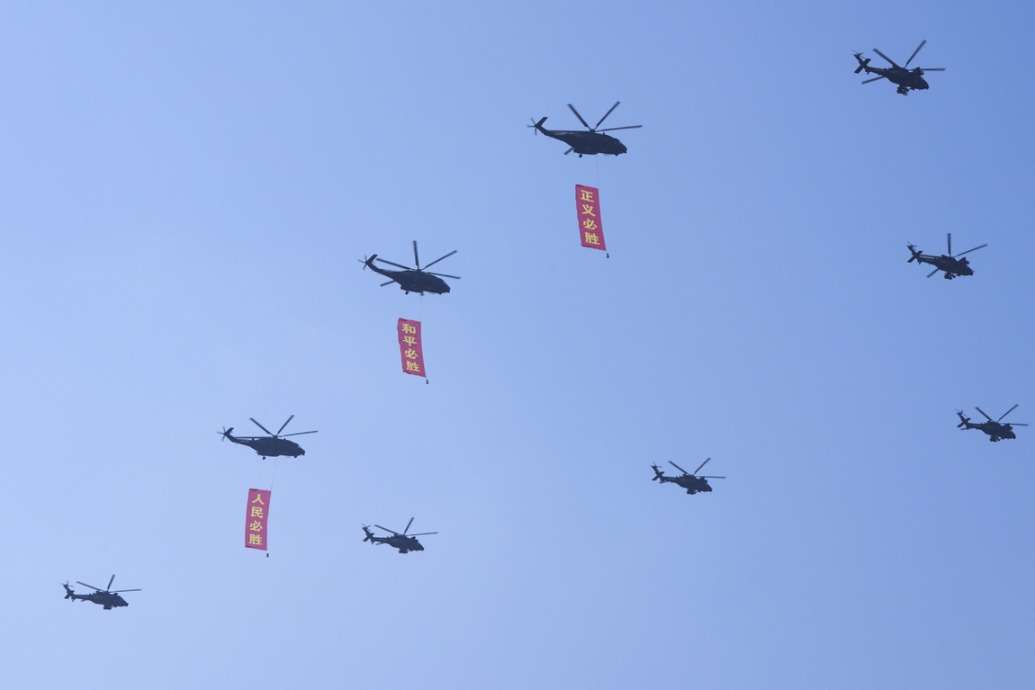Bamboo workshop targets disabled in Southeast Asia


Once dismissed as the "poor man's timber" in the Philippines, bamboo is now being recognized for its potential to create jobs and transform lives, especially for people with disabilities, said Filipino architect Jed Michael de Guzman, who recently attended bamboo weaving training in Beijing.
With 14 years of architectural experience, including six focused on bamboo construction, De Guzman came to China eager to explore new opportunities along the bamboo supply chain.
"Not many people with disabilities can take part in bamboo construction, but bamboo weaving opens more doors for them, as well as for small and medium-sized enterprises in the Philippines," he explained.
The training program, organized by the National Academy of Forestry and Grassland Administration in Beijing and sponsored by China's Ministry of Commerce, was designed to support poverty alleviation and empower people with disabilities in Southeast Asia. According to NAFGA, the program aims to build a cooperation platform with Southeast Asian countries.
A total of 20 officials and experts from Laos, Nepal, Malaysia, Thailand and the Philippines, specializing in disability empowerment and community development, participated in the two-week program in July.
In Beijing, participants attended seminars with experts from the International Bamboo and Rattan Organization and the China Disabled Persons' Federation.
They then traveled to Sichuan province, a region rich in bamboo resources, where they learned traditional weaving techniques, including those recognized as intangible cultural heritage. Craft masters guided them in bamboo basket-weaving and other artisanal skills.
"Bamboo weaving is a way to create maximum value from minimal resources. It not only strengthens industries but also benefits people with disabilities, since weaving is labor-intensive and accessible," said De Guzman.
He shared that he has been running a bamboo boot camp in the mountains of Davao, where participants gain hands-on experience at every step of bamboo construction, from propagation and harvesting to building. After attending the training in China, he plans to introduce bamboo weaving programs in his local community.
For Sandra from Sarawak OKU Skills Development Association in Malaysia, the training was equally eye-opening. Her organization aims to help people with disabilities build skills.
"I joined this program to explore new weaving techniques and international perspectives. It has broadened my knowledge and inspired innovation in using bamboo as a modern material," she said.
Having witnessed China's approach to empowering people with disabilities through handicraft skills, Sandra believes that bamboo weaving can boost confidence and provide sustainable income for disadvantaged groups.
In Sarawak, where bamboo resources are abundant but underutilized, she sees enormous potential.
"The program shows how efficiently China is using its resources compared with other developing countries," De Guzman said. "More importantly, it reflects China's commitment to leaving no one behind, creating jobs and development opportunities that include people with disabilities."
lishangyi@chinadaily.com.cn





































